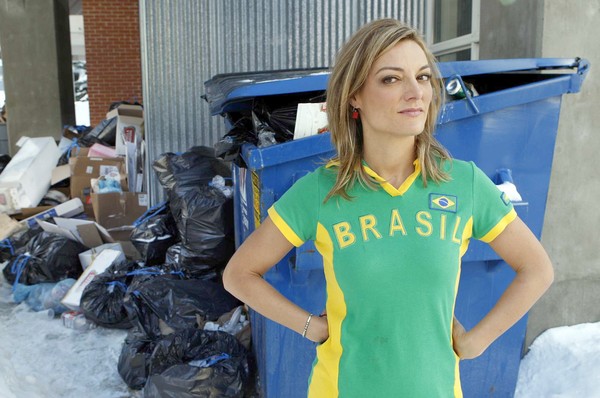If women have struggled to regularly breakthrough with the big narrative films that dominate the box office and turn directors into stars, the low-budget/small-crew environment of documentary filmmaking is one area where female directors have excelled. One of the most promising documentarians of the past decade, having been nominated for an Oscar the past two years, is British filmmaker Lucy Walker.
After some work in television, Walker made her entrance on the scene in 2002 with the documentary Devil’s Playground, a gritty and fascinating look at the Amish practice of rumspringa, where teenagers are given a chance to live outside the strict Amish rules in order to decide whether to commit themselves to the community. Equal parts shocking and predictable, the reaction to freedom from these strict constraints can be quite extreme.
Her second effort, 2006’s Blindsight, examines the work of the organization Braille Without Borders mentoring blind teenagers in Tibet. The film follows an effort by a half-dozen of the kids to climb a peak in the shadow of Mt. Everest, led by the first blind man to climb Everest itself. Inspirational at times but also often aggravating, this film stands out among Walker’s films as the one where she gets less out of the material than might be expected.
If you need a good scare, 2010’s Countdown to Zero is a great selection, looking at the proliferation of nuclear weapons and generally supporting the movement to eliminate them completely from the planet. More so than any of her other films, Walker breaks out really excellent production values, making this the most broadly accessible of her documentaries. From the stories of all the times we totally almost faced nuclear disaster to establishing the hopes and threats moving forward, this is informative and important.
Also released in 2010 was the Oscar-nominated Waste Land, directed by Walker alongside Karen Harley and João Jardim. Focusing on Brazilian artist Vik Muniz, they use his surprisingly wonderful art, made out of heaps of garbage, in order to tell the story of a group of poor Brazilians who make their living sorting out recyclable goods at a massive landfill in Rio. A wonderful combination of topic and treatment, it’s one of the better documentaries of all time.
Walker’s most recent effort, the Oscar-nominated short documentary The Tsunami and the Cherry Blossom, examines last year’s tsunami and draws on the cherry blossom as a metaphor for Japanese perseverance. Unfortunately, as is too typical of short films, short documentaries in particular, this remains the one film from Walker that isn’t widely available. After four features and a short, and earning two nominations, Walker is definitely a filmmaker to keep tabs of in the coming years.
-Erik Bondurant


